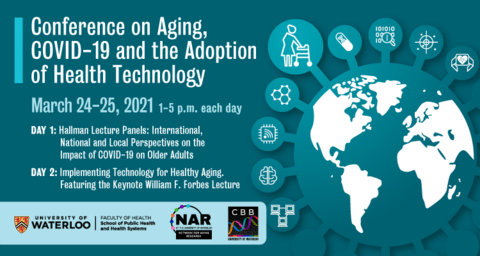The longer I live the more beautiful life becomes.
-Frank Lloyd Wright
Even in something as natural as aging, advancements in research and innovation can make the process smoother, improving the quality of life for older adults. In its 2013 Strategic Plan, the University of Waterloo identified an opportunity to become a leader in aging research. In 2014, the Network for Aging Research (NAR) was created to expand the field of aging research and support aging-focused researchers.
The development of NAR, as identified by the University’s Vice-President Academic & Provost, was a strategic and essential step toward advancing aging research. NAR acts as a networking tool for aging-focused researchers, and fosters collaborative aging research across the university.
News
Emerging Researchers - Nijani Nagaarudkumaran
Meet Nijani Nagaarudkumaran, an emerging researcher in the field of aging research, who is focused on unraveling the complex relationship between aging, autophagy, and inflammation, which could transform how we understand and treat age-related ocular diseases.
Announcement: Spring 2025 Catalyst Grant
We are excited to announce that applications for the Spring 2025 Catalyst Grant call are now open.
The theme of this year’s Catalyst Grant is “Resilience and Sustainability in Aging Populations,” supporting projects that advance sustainability in geriatrics research. Submission deadline is April 18, 2025, at 4:00pm.
University of Waterloo’s Conference on Aging, COVID-19 and the Adoption of Health Technology on March 24-25, 2021
The Network for Aging Research (NAR) is pleased to announce the University of Waterloo’s Conference on Aging, COVID-19 and the Adoption of Health Technology on March 24-25, 2021 from 1-5 p.m. each day.

